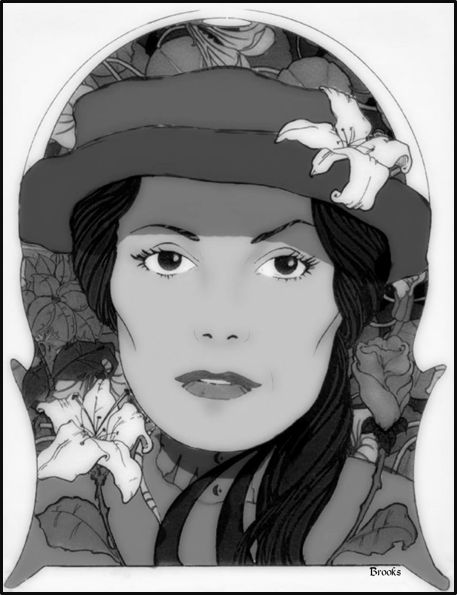Back | Next
Contents
Chapter Two
St. James Park
 small, well-dressed boy appearing to be about five or six was searching the crowd. A brass band in resplendent uniforms (it was an era of uniforms) was giving a summer concert and making a lot of noise. The little boy scanned the people with an intense concentration exceedingly rare in a child, at last spotting what he was after.
small, well-dressed boy appearing to be about five or six was searching the crowd. A brass band in resplendent uniforms (it was an era of uniforms) was giving a summer concert and making a lot of noise. The little boy scanned the people with an intense concentration exceedingly rare in a child, at last spotting what he was after.
A naval commander approached briskly toward him, through the throng—St. James Park was, even then, very popular. Clutched in the officer’s hand was an official Royal Navy attaché case. Whitehall and the Admiralty bordered the park, and it was not uncommon for members of His Majesty’s government to cut through the park, making their stroll more pleasant.
The commander was enjoying his walk and could see the scaffolding set up for the construction of the massive Admiralty Arch just bordering St. James. The officer smiled in satisfaction. Aston Webb’s elegant design would contain two residences for the Sea Lords, but more importantly, greatly expanded office space that the new, twentieth century Royal Navy desperately needed, even with the addition of its newly completed Queen Anne-style extension now called “The Old Admiralty Building.” The new First Sea Lord’s reforms were shrinking the fleet while at the same time doubling the staff work. The palatial building, with its three distinctive arches, would be an impressive sight when completed. As if the monumental architecture weren’t enough to remind everyone of the importance the navy played in Britannia’s life, the Admiralty Arch would also form part of the ceremonial approach to Buckingham Palace. The commander noted with pride that Aston Webb had also designed the front of the royal residence.

The commander’s attention was diverted as the little boy burst into tears and ran toward him. To an onlooker, it was just a child sobbing out some tale of woe to a man in uniform.
“I’m sorry you’re lost, little man, but I’m not a constable,” said the commander sympathetically. No doubt the child had mistaken his uniform for that of a policeman.
That produced more wailing and sobbing.
“All right,” said the embarrassed commander. “Enough of that boo-hooing. I’ll help you find your mates.” The commander took the child by the hand, and they started to scour the park. Not far from the hard-working brass band, they came to a large curving hedge—it’s still there, even today—and the child suddenly got excited, pulling at the officer’s hand, yelling, “This way!”
The boy broke away and ran through a crack in the bushes. The officer shook his head and followed.
Inside was a small area, confined all around by tall hedges. The isolation might have been a warning, as was the sight that greeted the officer. The little boy had run to a slim Nanny, who was gently rocking a perambulator. There were three more little boys standing obediently in line, like the Nanny, their backs to the commander. The boy pointed to the officer and the Nanny turned around.
She was hauntingly beautiful, but in an almost mask-like kind of way, with large, aware, and intelligent dark eyes that held an intense gleam that was disturbingly sinister. She coolly appraised the officer—who stared in apprehension—and she said softly to her charges, “We must thank the gentleman.”

The little boys turned around. One of them was smoking a cigar. They were midgets and, pulling out revolvers, they shot the commander. The noise of the gunshots had been covered by the overture to Gilbert and Sullivan’s “Princess Ida” played by the brass band.
The “Nanny” snapped her fingers and ordered, in German, “Abrufen der Kunststoffgehäuse!” Which meant, “Fetch the attaché case.” One of the midgets pulled it from the officer’s hand. As he did, the woman asked sharply, “Ist er noch am leben?” The midget checked the officer’s pulse and said, “Ja.”
The woman snapped her fingers again and extended her hand. On one finger was an unusual ring: a blood-red pearl crescent-moon. The midget gave her the case, which she put in the pram. She wheeled it away as the “children” fell obediently in line. As the smoking “child” was about to toss his cigar, the woman shook her head. He crushed the cigar out in his palm and placed it in his pocket. They walked back through the hedge into the park, looking like nothing more sinister than a nanny and her charges.
Behind them, in the clearing, the badly wounded officer painfully opened his eyes.
Back | Next
Framed
 small, well-dressed boy appearing to be about five or six was searching the crowd. A brass band in resplendent uniforms (it was an era of uniforms) was giving a summer concert and making a lot of noise. The little boy scanned the people with an intense concentration exceedingly rare in a child, at last spotting what he was after.
small, well-dressed boy appearing to be about five or six was searching the crowd. A brass band in resplendent uniforms (it was an era of uniforms) was giving a summer concert and making a lot of noise. The little boy scanned the people with an intense concentration exceedingly rare in a child, at last spotting what he was after.
